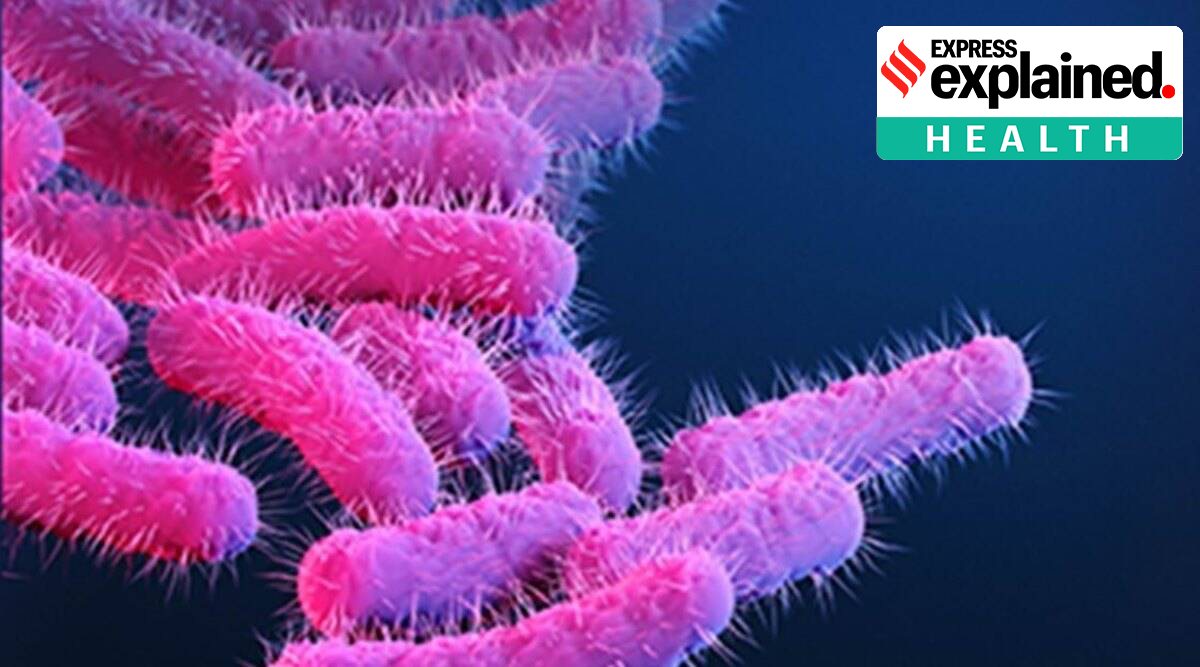[ad_1]
, Edited by Explained Desk | Kochi |
Updated: December 21, 2020 6:26:19 pm
 The shigella infection spreads from contaminated food and water. (Picture via ieMalayalam.com)
The shigella infection spreads from contaminated food and water. (Picture via ieMalayalam.com)
Health officials in Kozhikode district of Kerala convened emergency meetings and kicked in preventive measures last week after six cases of shigella infection and nearly two dozen suspected cases were detected within the urban corporation limits.
What is shigella infection?
Shigellosis, or shigella infection, is a contagious intestinal infection caused by a genus of bacteria known as shigella. The bacteria is one of the prime pathogens responsible for causing diarrhea, fluctuating between moderate and severe symptoms, especially in children in African and South Asian regions.
The bacteria, after entering the body through ingestion, attacks the epithelial lining of the colon resulting in inflammation of the cells and subsequently the destruction of the cells in severe cases. It takes only a small number of shigella bacteria to enter a person’s system and get her sick.
? JOIN NOW ?: The Express Explained Telegram Channel
What are the common symptoms?
People with shigellosis may start experiencing symptoms within one or two days of the entry of germs in the body. The common symptoms are diarrhea (often bloody and painful), stomach pain, fever, nausea and vomiting. There have been cases too where people don’t experience any signs of the bacterial infection.
How does it spread?
The infection is known to spread person-to-person when the bacteria is swallowed accidentally. This can happen in child-care settings if a person does not wash his hands after cleaning the baby’s diaper and then eats food with the same hands. Spread through contaminated food and water is the most common form of transmission across the world.
Is shigella severe in most cases?
No. In most cases, the patient may experience diarrhea lasting for a couple of days and then the symptoms subsiding gradually. If diarrhea persists for more than a week and if the patient suffers from fever and stomach pain, it is advisable to consult a doctor. Complications don’t usually occur in most cases.
In certain cases, however, if left undiagnosed even after a week of severe symptoms, shigella can cause complications like seizures, rectal prolapse and reactive arthritis, resulting in even death.
How to prevent getting infected by shigella?
According to the CDC, it’s important to wash hands with soap especially after dealing with a child’s diaper and before preparing/eating food. While swimming in pools and lakes, it’s advisable not to swallow water. One can avoid eating contaminated food especially from the street in unhygienic conditions. Drinking boiled water is advised.
How serious is the shigella spread in Kozhikode?
Health department officials said the spread of the shigella infection in Kozhikode has been brought under control and there are no reasons for worry. The first suspected case of the infection was a 11-year-old child who was admitted to the Kozhikode Medical College Hospital following severe diarrhea. His condition worsened rapidly and he died last week.
Many people who attended the child’s funeral and had consumed some form of food or water from his home began to report similar symptoms. When their samples were tested at the lab, shigella was confirmed in six cases. At least 20 others were suspected to have contracted the infection.
DMO Dr Jayasree told The Indian Express that except four adults, most of the cases were detected among children. They were promptly admitted to local hospitals for treatment and discharged subsequently.
Preliminary reports indicate that contaminated water, served at the child’s funeral, could have spread the infection. Samples from the wells in the area have been sent for testing. Most of the cases were restricted to Kottamparambu ward within Kozhikode Corporation limits.
[ad_2]
Source link